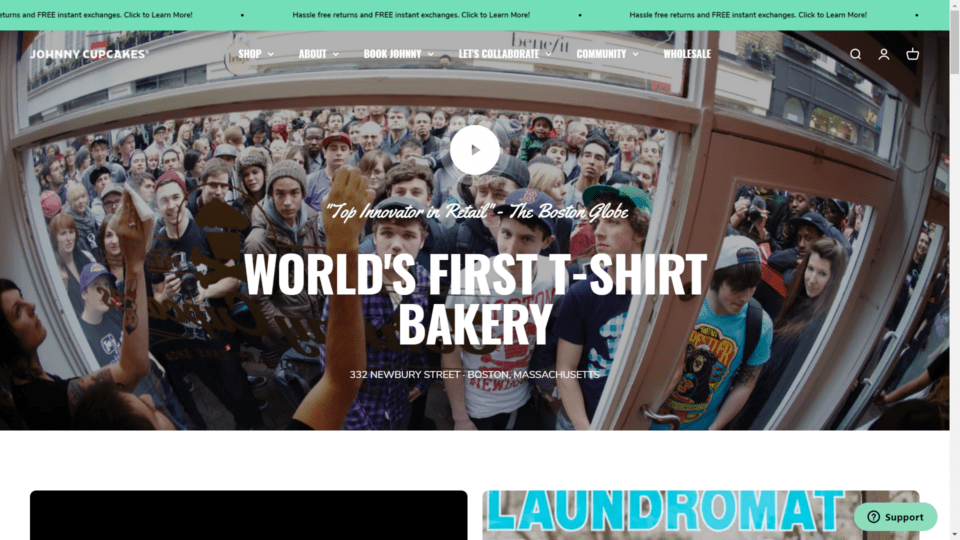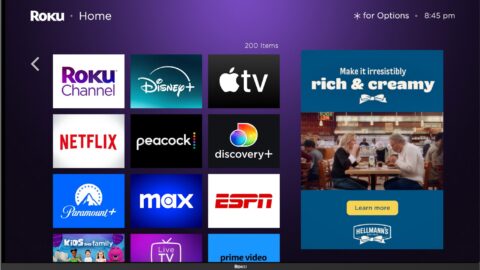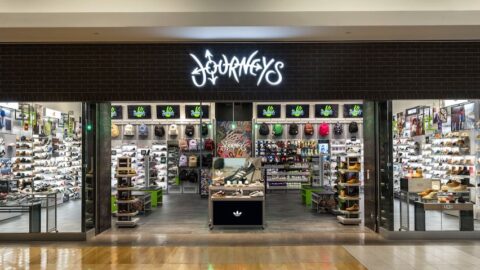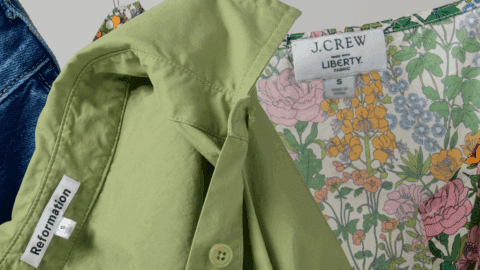I don’t usually write stories in the first person, but I was inspired by Johnny Earle, Founder of Johnny Cupcakes — a “bakery” that doesn’t sell real food — to bend the rules of journalism just a bit. One of the big takeaways from his keynote at the 2023 Retail Innovation Conference & Expo in Chicago was about the importance of thinking outside the box as a way to stand out from the crowd: “Don’t just check boxes; create new boxes to check.”
What does Earle sell? Johnny Cupcakes, which has a brick-and-mortar store on Boston’s Newbury Street as well as an ecommerce site, primarily sells colorfully wacky T-shirts — many with original designs, some with licensed characters such as The Simpsons. But it’s less about the products and more about the whole Johnny Cupcakes experience.
Earle, who talks a mile a minute and with a refreshing candor about not just his successes but his shortcomings, blind spots and missed opportunities, spoke on the topic “Building Brand Hysteria, Customer Loyalty and Memorable Experiences.” He knows from whereof he speaks; his slides included close-ups of a few of the 2,000+ people who have gotten Johnny Cupcakes-themed tattoos, playing off the logo of a cupcake atop a crossed pair of bones, as well as video of people who have camped out at his store for days at a time waiting for the next product release.
Mostly I’m going to let him speak for himself:
Why he likes the retail industry: “I’m addicted to this weird pain we call retail. Why do we keep coming back to it? I want to get it right the next time, and I love the unpredictability. I don’t sell merchandise; I sell memories. Merchandise is a byproduct.”
What goes into a memorable product drop/promotion: “One St. Patrick’s Day I dressed as a leprechaun and hid in bushes in the Back Bay [section of Boston], with T-shirts showing a pot of gold. The only way you could get one was to follow me and find me. One person found me within seven minutes. If you got a T-shirt from a short dude hiding behind a bush, there’s no way you wouldn’t share that story every time you wore the shirt.”
What goes into a memorable product drop/promotion, part two: “Who else hates not being able to order a breakfast sandwich because it’s two minutes after 12 noon? We made a breakfast-themed T-shirt that you could only buy during breakfast hours. We lost customers who drove from New York because we said, we’re sorry but we can’t sell them now. But the people who did buy the shirt talk about it every day; we served breakfast to them.”
What makes him humble: “I’m always three mistakes away from crying in the Trader Joe’s parking lot about how to meet payroll. But my $10,000 mistakes often lead to $100,000 ideas. Failures are experiments, and experimenting is how we grow.”
What keeps him humble: “We did a pop-up in London on Carnaby Street, but I didn’t want to print my T-shirts anywhere else but the U.S. Shipping shirts from the U.S. to England ate up half our profits.”
The importance of testimonials in marketing and communications: “Testimonials attract trust; nice words are currency. People would rather trust a complete stranger’s opinion of you rather than what you say about yourself.”
The value of listening to customers: “When you can see and meet your customers in real life, that’s a lot more magic than looking at numbers on the back end. Hearing customers’ excitement and their frustration helps us make better decisions. When they got that T-shirt that didn’t fit right — or the T-shirt that inspired them to change their life. Forget B2B or B2C, it’s all about H2H — human to human. Remind people that you’re a human too. Share pictures of your childhood bad haircuts [Earle shared several]. Share your story. Customers want to know who they’re supporting.”
How his principles are reflected in his business: “When you go to our website the first pop-up reads ‘I believe all people should be treated equally and with respect, kindness and love regardless of their race, sexual orientation or gender identity. If you do not believe this, I cannot accept your money.’”
How he deals with bad reviews from people disappointed that he doesn’t sell food: “I put one online review on a T-shirt and sold it for $40.”















